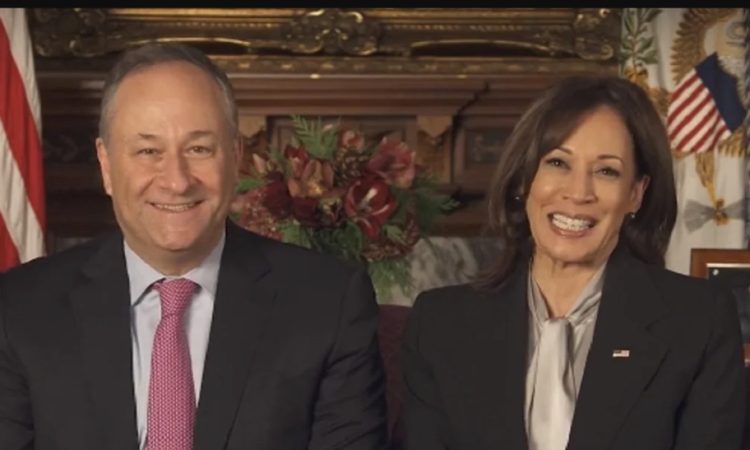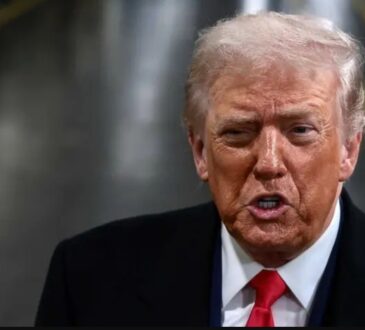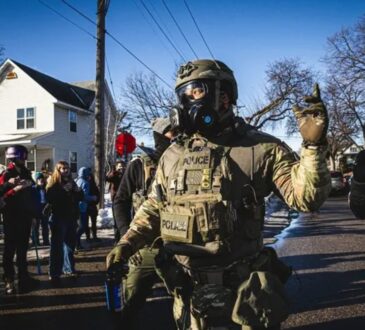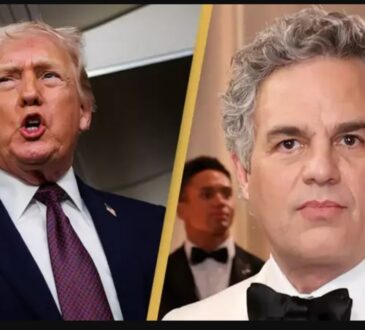Kamala Harris Repeats Highly Dubious Holiday Statement for Yet Another Year, Public Response Is Pure Ridicule

It’s kujichagulia time again, apparently.
As you doubtlessly know if you have a child with a woke teacher, Kwanzaa is yet again upon us. On Monday, the non-denominational celebration of African-American heritage began; the seven-day festival runs through Jan. 1, celebrating one principle of the black American experience each night.
Not that many even celebrate, mind you. In 2019, USA Today found that of those planning to celebrate a winter holiday, only 2.6 percent would be celebrating Kwanzaa. In 2012, NPR even asked, “Is Kwanzaa Still A Thing?”.
Short answer: Yes, but only for the crowd that listens to NPR, which also means the crowd that the Biden-Harris White House cares about.
Thus, it’s little surprise both the president and vice president released messages marking the holiday season.
In the first family’s statement, President Joe Biden offered gratitude “for the rich heritage of African-Americans, which is deep in the story of our nation.”
“In 2023, it’s our hope that we’ll all remember the wisdom of the seven principles of Kwanzaa, especially the values of unity and faith, as we work to make the promise of our nation real in the lives of every American,” he said.
Fairly pro forma — and uncontroversial. Instead of following that lead, Vice President Kamala Harris used the occasion to double down on one of her more preposterous personal claims.
“Growing up, Kwanzaa was always a special time. We came together with generations of friends and family and neighbors,” Harris said in her video, recorded with husband Doug Emhoff
“There were never enough chairs. So my sister and I and the other children would often sit on the floor and together we lit the candles of the kinara. And then the elders would talk about how Kwanzaa is a time to celebrate culture, community, and family.
“And they, of course, taught us about the seven principles,” she continued.
“My favorite principle was always the second — kujichagulia. Self determination, the power to design your own life and determine your own future. And it is a deeply American principle, one that guides me every day as vice president.”
It’s too bad that “repeatedly making stuff up despite being called out on it” isn’t one of the seven principles celebrated during Kwanzaa. Then, not only could both Vice President Harris and President Biden have the same favorite principle, Harris could annually use the holiday to show just how dedicated to it she is.
To understand why this is problematic, let’s go beyond a rough sketch of what Kwanzaa is and look at its origins.
As National Geographic notes, Kwanzaa was started in 1966 by Los Angeles black power activist and academic Maulanga Karenga (birth name Ronald McKinley Everett), founder of the Us Organization.
“The holiday struggled for recognition in its early years, writes historian Elizabeth Pleck in the Journal of American Ethnic History. Although some urban communities adopted it, many Christians and Muslims viewed the secular holiday as antithetical to their beliefs,” National Geographic notes.
“Kwanzaa’s adoption also slowed as the Us Organization unraveled amid internal feuds—including Karenga’s 1971 conviction and imprisonment for torturing two women he believed had tried to poison him.”
Instead, National Geographic notes, the holiday wasn’t “widely recognized” until the 1980s.
The problem here: Kamala Harris was born in 1964, before the holiday even existed, and long before it was popular enough that there was a high likelihood she was sitting on the floor as a wee tyke, talking with her sisters about the seven principles of Kwanzaa.
But wait! This isn’t the first time she’s told America this same improbable story! Or the second! And it’s also not the first time she’s been called out for it, either!
There, ladies and gentlemen, are the 2020 and 2021 odes to kujichagulia, complete with the insistence that, yes, she celebrated this holiday repeatedly as a child and has vivid memories of it. And a bit of the eye-rolling, as well, courtesy of the Daily Wire’s Matt Walsh.
There’s a phrase those familiar with early-2000s internet culture will be aware of: Pics or it didn’t happen. If you don’t quite grasp the meaning of this mantra, you will get a rough idea of what it means by these tongue-in-cheek responses to this and other Kamala Kwanzaa messages:
And some used the occasion to mention the, um, less savory aspects of Kwanzaa and its founder.
Now, perhaps we would be inclined to give the veep the benefit of the doubt if there were reason to. After all, as CNN noted in a 2010 profile of her titled, “A ‘female Obama’ seeks California attorney general post,” Kamala “was born in Oakland and grew up in the liberal bastion of nearby Berkeley during its 1960s-’70s heyday.”
However, part of the problem is that the whole “female Obama” thing never really happened, at least among black voters.




